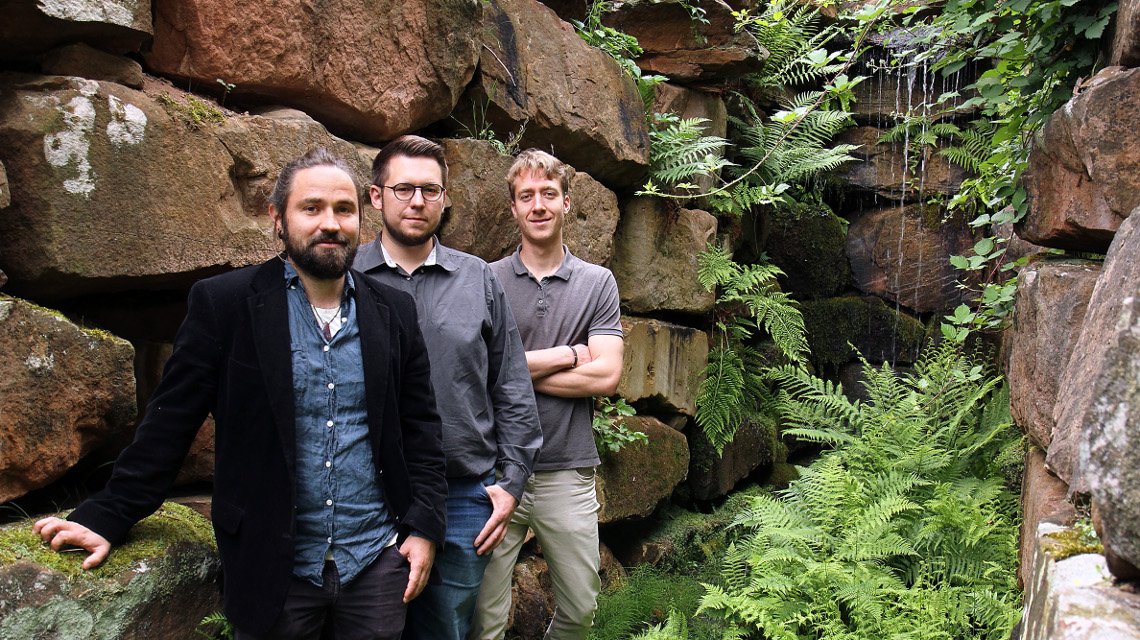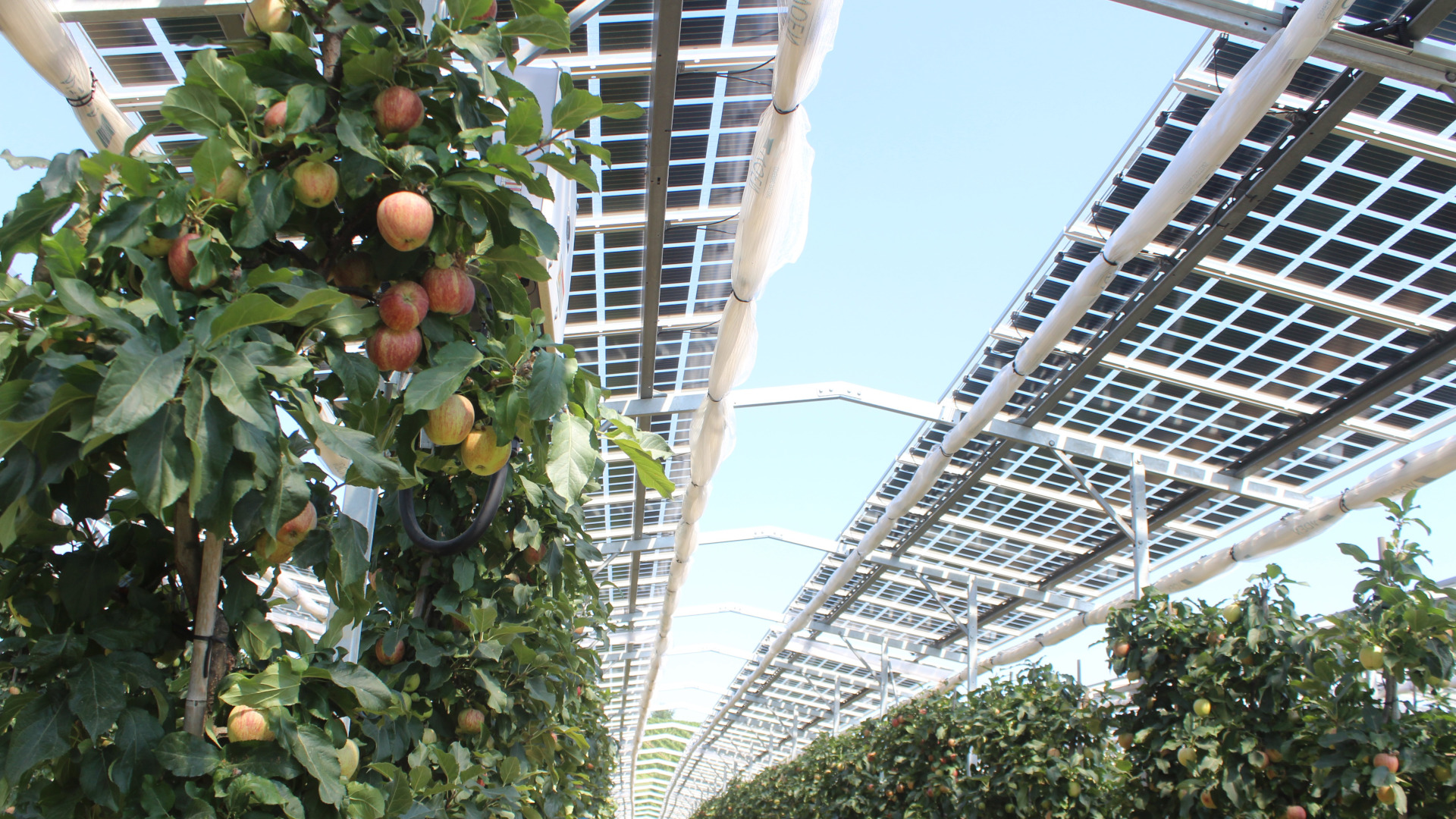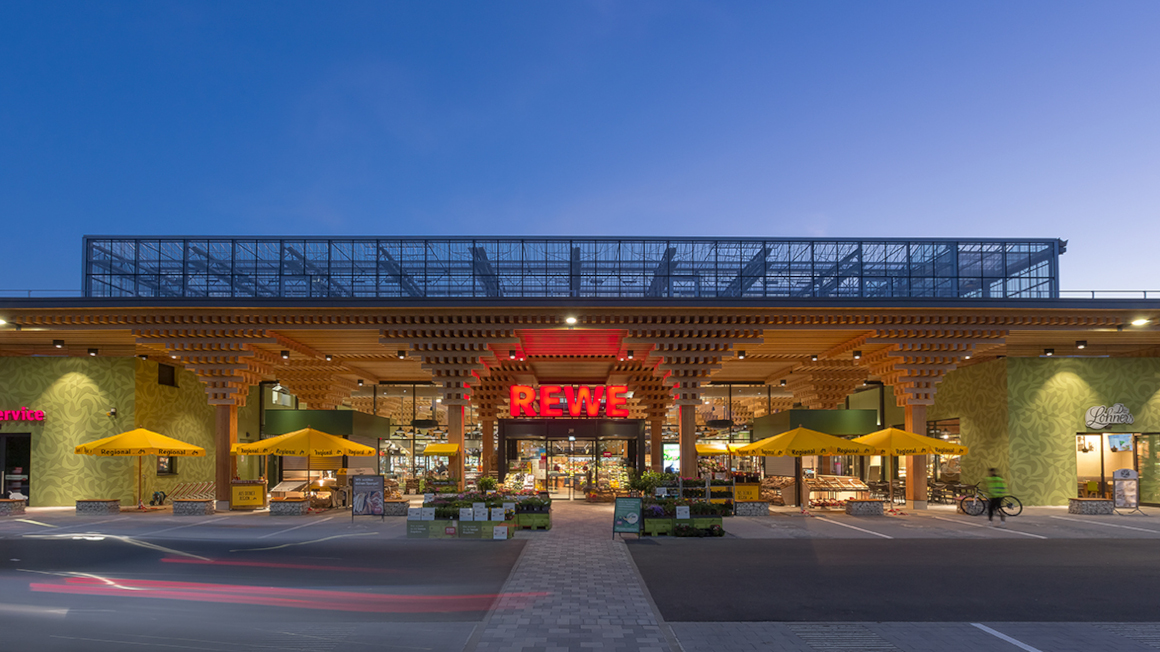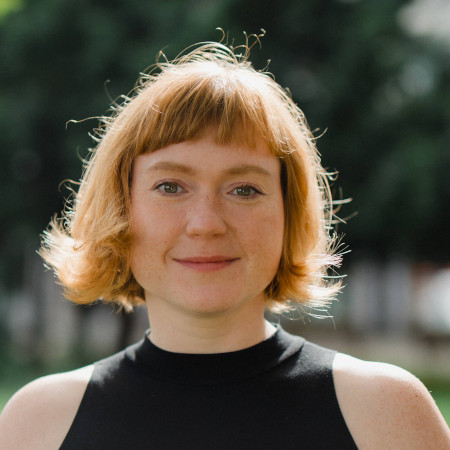Green walls for better air
A student start-up constructs maintenance-free moss facades. With the idea, they won the Rhineland-Palatinate ideas competition.

Moss has no roots. Unlike other plants, moss does not need them to absorb nutrients from the soil, as moss feeds from the air. When moss arose 400 million years ago, there was a lot of ash in the air due to numerous volcanic eruptions. Even today, mosses remove fine dust and carbon dioxide from the air to supply themselves with nutrients. Many urban areas therefore form an optimal natural habitat for these evergreen land plants. This was the basis for the student start-up "Artificial Ecosystems".
No pesticides and no pruning necessary
Tobias Graf, Björn Stichler and Martin Hamp have developed maintenance-free self-greening concrete facade elements. Special surface structures ensure that local moss spores from the air can settle and develop a dense moss carpet. "The plants are accustomed to the prevailing climate and do not have to adapt. In addition, mosses do not require any further cost-intensive care such as pesticides or pruning - which is a disadvantage of previous façade planting," explains Graf.
Removing CO2 and fine dust from the air
"At the top of the panels, there is a semicircular recess for irrigation. The grooves ensure that the water is evenly distributed," explains Hamp. On top is an optional solar cell for energy supply. There is a water tank in the bottom of the panels, which also houses the technology. The so-called BryoSYSTEM uses sensors to measure numerous environmental conditions and sends them to a measuring device. "With the help of an algorithm, this adjusts the plant nutrition according to the weather conditions," says Stichler. The data collected is also of interest for future Smart City concepts. "For example, we want to find out how much CO2 and fine dust the plants absorb. These figures could be used, for example, to promote cities that use the system in public buildings."
Looking for partners and customers
The founders have already applied for a patent for the BryoSYSTEM. Now they are looking for employees, partners and first customers. They are supported by the Federal Ministry of Economics and Technology with an Exist grant of around 145,000 euros for twelve months. The three founders have already achieved their first success: They won first place in the Rhineland-Palatinate 2019 ideas competition.
bl/um


